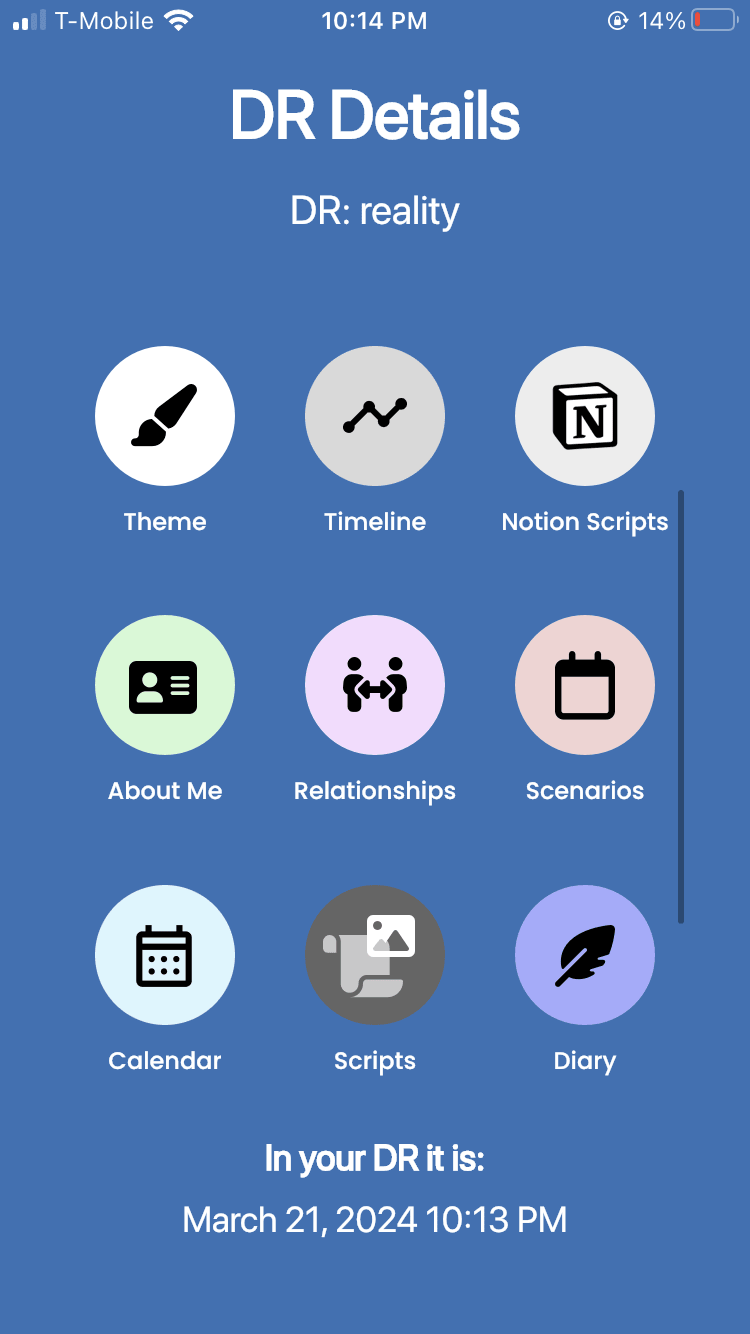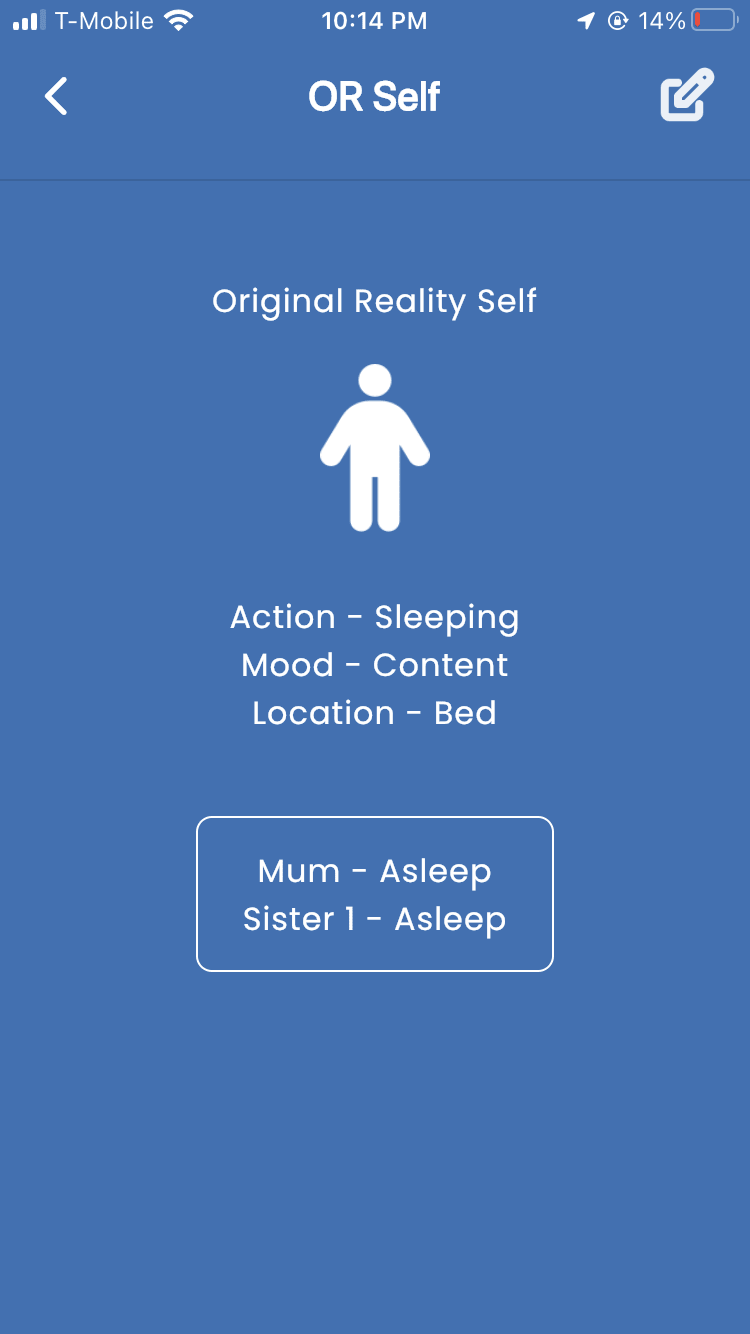Reality shifters are a group of people who believe they can transport themselves to another reality by using techniques they have learned from posts on the Internet. Some of these techniques are ancient, such as breathwork, affirmations and visualization. But one of the most important techniques is very contemporary: an app on your phone.
The reality shift began in the late 2010s on Amino, a small, fan-focused social media platform. But it first gained mainstream attention on TikTok in 2020, a time when many people — especially young people who grew up immersed in fantasy and online worlds — had reason to feel their current reality was lacking. The unique combination of spirituality, technology and social community is what attracts the hundreds of thousands of people who have subscribed to online reality shifter communities on Reddit, Discord and TikTok.
Using specific rituals, shifters can enter their ‘desired reality’ (DR) and travel to places like Hogwarts or Westeros, or they can even switch to an alternate reality from their actual lives. There are as many opinions on shifting as there are shifters, but generally the community believes that we live in a multiverse, and so all of these realities are equally real. Moving from your Original Reality (OR) to a DR is all about unlocking the power of your mind.
According to a 2021 study published in Current psychologySome report “sensations of spinning, rocking, and falling” as the body enters a trance state and the new reality takes hold. Ears buzz and ring, voices are heard and phantom sensations are felt. The specifics of each experience, like the realities that enter, are different.
How people cuddle, snore and nap every night in virtual reality
But one thing seems true across the board: shifting is difficult. The community’s online spaces are full of people complaining about how they’ve been trying to change for ages but can’t, and asking for help.
Of course, skeptics point out that a lot of it is essentially about having a very vivid, lucid dream, but some shifters will strongly disagree. For those who are ‘successful’, a reality-altering session can start with the ‘raven’ or ‘starfish’ method, where you lie on the floor, count to one hundred and say an affirmation such as: ‘I am in my desired reality and can feel it” between each song. Some use ‘subliminals’, which are specially chosen audio tracks, to help them shift. At the heart of many shifters’ practice is ‘scripting’: writing it down in intricate detail before changing what the DR looks like.
Or you can just use the app.
An app to leave reality
The app is called Lifa and aims to help users script what happens when they enter a new reality. While the app was released to the Apple and Google app stores in 2023, Lifa was first conceptualized by a former Amino community member in 2019. In their description, the app did not exist in this reality, but rather as an app in your desirable reality.
Think of it as a kind of WeChat for the multiverse. The DR Lifa app allows you to create a portal to move between realities, like what you would call an Uber in real life. It also allows you to manifest any object or outfit, and allows you to watch your original remotely while in your desired reality, as if it were a show on Netflix.
As shifting spread beyond Amino, it moved to “ShiftTok,” the loose community surrounding the practice on TikTok, and a constellation of subreddits and Discord servers. At each step, different users shared new versions of their own Lifa app.

OR Lifa offers a variety of scripting tools, and these allow you to access imitation versions of a bank account app or social media platform and record your own balance and number of followers. It can be understood as “a tool for belief,” in the words of a shifter who spoke to The Daily Beast on the condition of anonymity.
Screenshot via Aidan Walker
DR Lifa is presented as a technology company, complete with a logo and UX. It exists to give you absolute freedom and access within the reality it depicts – but if you don’t know what you want, DR Lifa knows you well enough to depict something “a trillion times better” than you could have wished for . anonymous shifter told The Daily Beast.
TikTok, Meta and Apple can only hope for this kind of power, but DR Lifa’s mythology reflects their real brand identities and advertising promises. Just as these technology companies increasingly mediate our relationships with objects and people in this reality, Lifa does the same for a desired reality. It combines all functions and centralizes all actions on one interface.
“People have been doing this with technology for decades,” Heidi Campbell, a professor of digital religion at Texas A&M University, told The Daily Beast. “Whatever your understanding of the spiritual world or the divine world is, you usually translate that and put it on the technology.”
“Infinity and freedom”
The Lifa app is more modest than the DR version in this reality. It is available for free on the Google and Apple app stores, where it has almost a million downloads and around 100,000 active users per month. However, the app’s developer, Arthur (whose last name is withheld to protect his anonymity), told The Daily Beast that he is not a shifter himself, but “more of a maker.”
Arthur’s first exposure was browsing a TikTok post from a user who shared his imageboard design for a Lifa app. Arthur saw that there was no Lifa in this reality, but it was an important part of the change, and intervened to “fill a need for the community.”
Every feature of OR Lifa is derived from something the community proposed. “I care deeply about the individuals in the community,” Arthur said. “And I want them to fully enjoy their journeys to these worlds and the comfort and safety these journeys offer them.”
OR Lifa offers a variety of scripting tools, and these allow you to access imitation versions of a bank account app or social media platform and record your own balance and number of followers.


Screenshot from Lifa. The Lifa app is more modest than the DR version in this reality.
Screenshot via Aidan Walker
OR Lifa can be understood as “a tool for faith,” in the words of a shifter who spoke to The Daily Beast on the condition of anonymity. Writing a facsimile of what your phone might look like in a DR can help you achieve that goal. The same shifter said that the Lifa app “demonstrates a good manifesto of changing beliefs: infinity and freedom.”
Arthur agrees saying “the allure.” [of shifting] comes from the fact that you can design any world, any character you want, and you can make that world a reality – a world where you are free from inhibitions, free from the judgments and pressures of our ORs.” He is now working on a new app for a broader audience of ‘casual creatives’ who want to create immersive fictional worlds ‘without the learning curve of writing books’.
A digital toast bar
In some ways it is more accurate to speak of ‘changing communities’ than of a ‘changing community’. The various subreddits and Discords differ from each other and occasionally argue. Unregulated by mods, ShiftTok is a chaotic space that is difficult to follow. But overall, each community is committed to helping others on their changing journey by sharing tips and knowledge. Shifts may be all about leaving this reality, but through these communities it seems to be impacting lives in this reality.
The most comprehensive psychological research on shifting is a 2021 study published in Current psychology, which compared it to other “immersive daydreaming practices,” and points out that if not done in a controlled and responsible manner, reality shifting could turn into a form of “maladaptive daydreaming.” There are reports in shifter communities of people who can’t stop shifting, are stressed by what they encounter in a DR, or use it as an escape from the problems in their original reality. But most shifters seem to have their practice under control.
When you enter a Discord dedicated to reality shifting (and there are several), you’ll see channels on what you would expect, such as scripting desired realities. But you’ll also see channels dedicated to board games and conversations about workout routines. There is no data on this topic, but it seems that the community involves people from all over the world: most posts are in English or Spanish, and there are many users practicing a second language in the online communities .
A practice that some have criticized as a way to escape reality actually serves as a way to change the way people experience this reality and help them find connection. “Everyone wants their digital cheers bar,” Campbell told The Daily Beast. “A place where everyone knows your name and is glad you came.”
Read more at The Daily Beast.
Get the Daily Beast’s biggest scoops and scandals delivered straight to your inbox. Register now.
Stay informed and get unlimited access to the Daily Beast’s unparalleled reporting. Subscribe now.